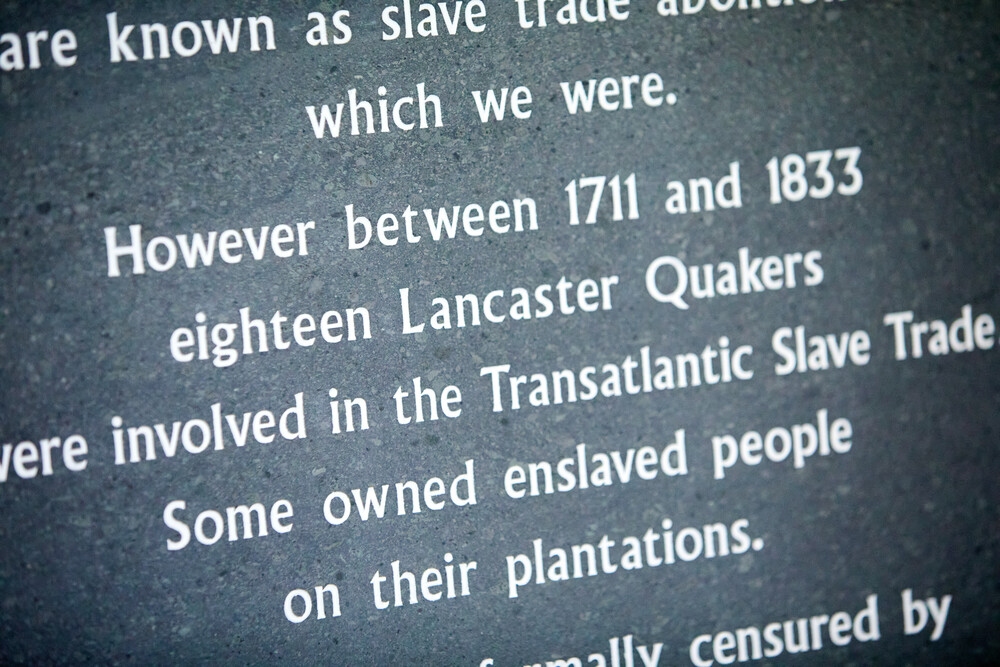Reparations reflections: truth and reconciliation
The Reparations Working Group has been appointed to take forward the commitment minuted by Britain Yearly Meeting in 2022 to consider financial and other reparations for the role of Quakers in the transatlantic chattel slave trade. You can find out more about this decision, and the actions which have flowed from it, on our reparations page.

In this series of posts, we will share the readings from the opening worship of the Reparations Working Group meetings. This reading and reflection is from Ann Morgan of Lancashire Quakers.
For the first meeting of the BYM Reparations Working Group (RWG) in late 2023 I choose to read a passage from Ros Martin's book Before I am rendered invisible: resistance from the margins during our opening worship.
Left to our imagination
it is hard to find words
to describe this,
oh, so painful business
How do we reconcile hurts so deep?
Some of us choose not to remember.
What does it feel like to remember?
What do we want to remember?
Are we ready to witness another's pain?…
Ros, a Bristol Quaker, describes herself as a black woman artist of African descent whose writing is informed by her life experiences, observations and knowledge of her family's own stories. Her writing really touched me, in particular the opening part of the chapter entitled 'What is Truth? What is Reconciliation?' Words which, although they are Ros's response to the work of the South African Truth and Reconciliation Commission, I feel are so applicable to our work on reparations.
As Quakers, truth and reconciliation must be at the heart of our discernment and our work on reparations. Telling the truth about our history will be a significant part of our journey.
My initial involvement in this work was to research the involvement of Quakers in my local area, Lancaster in North West England, in the transatlantic chattel slave trade. I first presented this research to British Quakers in 2022, and there is a video which summarises what I found.
I know from undertaking research into the slavery that Lancaster Quakers were involved in that, at times, we will find what we read and hear challenging and distressing. We will be listening to voices we seldom hear, of those experiencing the legacies of slavery. We are not going to find it easy to address the harms revealed and the profound impact those legacies are still having on individuals and communities.
Thus, the questions asked in this poem by Ros really speak to me:
Left to our imagination
it is hard to find words
to describe this,
oh, so painful business
How do we reconcile hurts so deep?
Some of us choose not to remember.
What does it feel like to remember?
What do we want to remember?
Are we ready to witness another's pain?…
– Ros Martin 2008